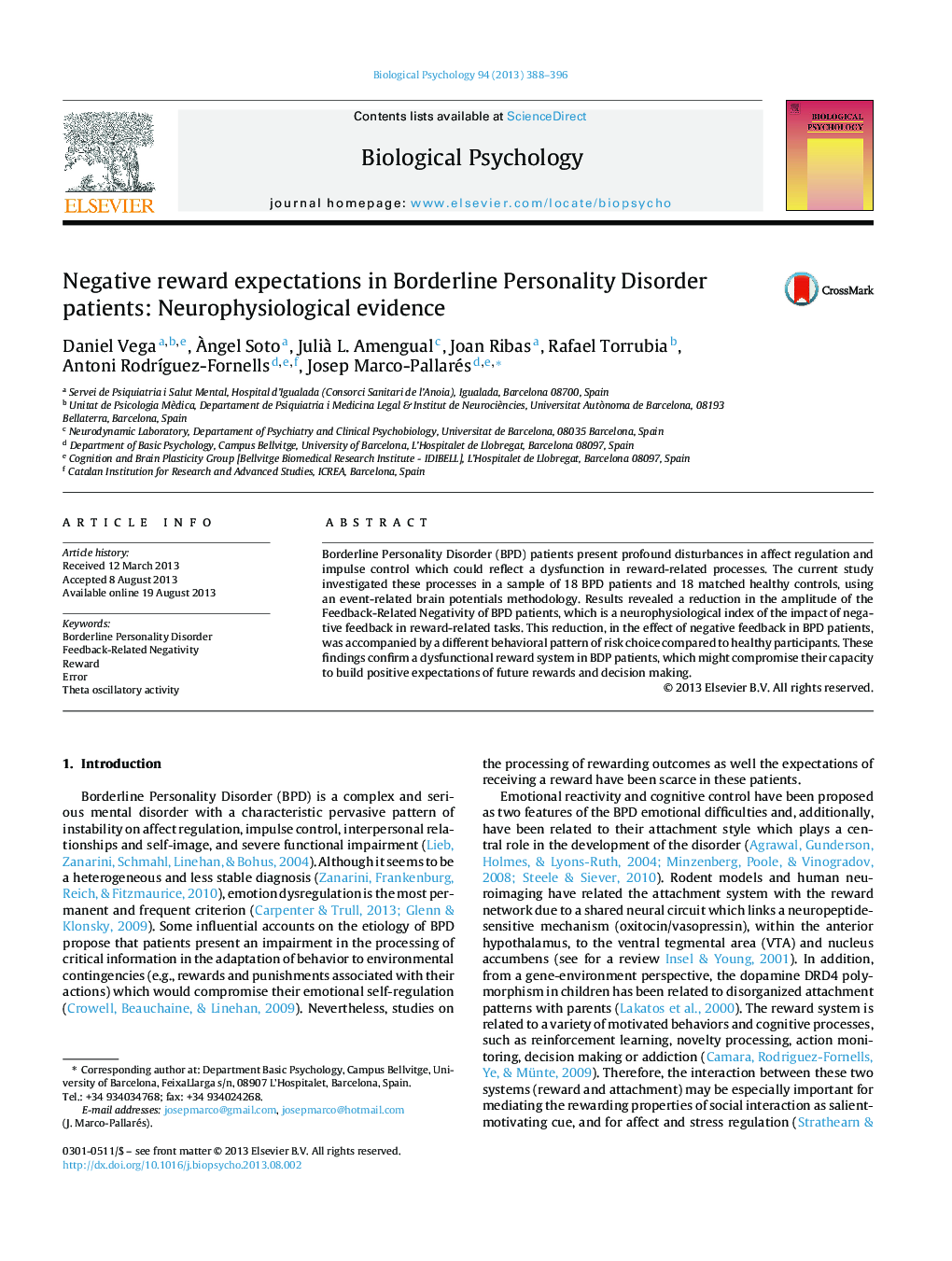| Article ID | Journal | Published Year | Pages | File Type |
|---|---|---|---|---|
| 920952 | Biological Psychology | 2013 | 9 Pages |
•Neuropsysiological signatures of reward processing were assessed in Borderline Personality Disorder patients (BPD).•Impaired negative feedback processing in the BPD patients was evidenced.•The BPD participants showed a lack of behavioral adjustments after feedback.•A negative bias at cognitive level in the BPD patients is proposed.
Borderline Personality Disorder (BPD) patients present profound disturbances in affect regulation and impulse control which could reflect a dysfunction in reward-related processes. The current study investigated these processes in a sample of 18 BPD patients and 18 matched healthy controls, using an event-related brain potentials methodology. Results revealed a reduction in the amplitude of the Feedback-Related Negativity of BPD patients, which is a neurophysiological index of the impact of negative feedback in reward-related tasks. This reduction, in the effect of negative feedback in BPD patients, was accompanied by a different behavioral pattern of risk choice compared to healthy participants. These findings confirm a dysfunctional reward system in BDP patients, which might compromise their capacity to build positive expectations of future rewards and decision making.
